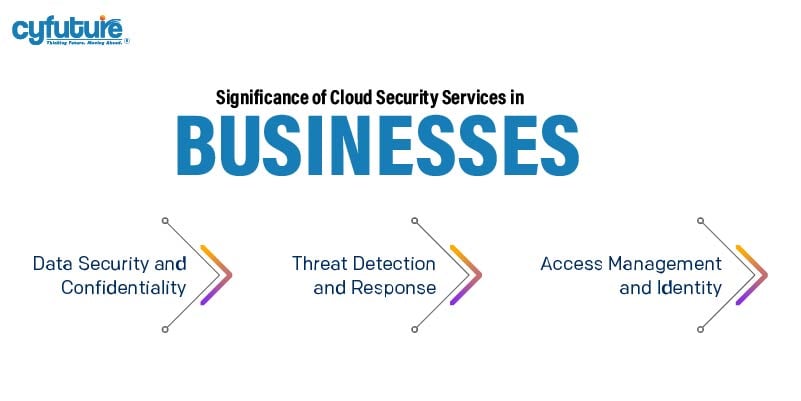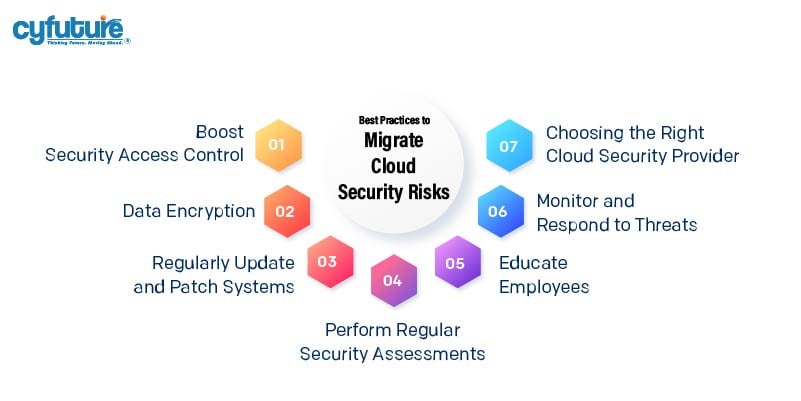-
Get Cloud GPU Server - Register Now!
Toggle navigation

Digital transformation for businesses is crucial nowadays. This is because it determines success, therefore almost all enterprises inclined toward growth depend on cloud computing as their most important tool. Today, clouds indeed seem pleasing; however, they carry numerous responsibilities. Hence, cloud security has become a major concern as more companies start using cloud solutions.
This can be attributed to increased cases of cloud services usage, necessitating the discovery of possible threats and preventive measures against these dangers. But, do you actually want to dismiss the dangers posed by clouds?
This comprehensive blog post will particularly focus on why cloud security is paramount for organizations to prioritize data safety while adopting Cloud Security Services and Cloud Services in India and other companies.
However, let’s take a look into a few stats and data before delving deep.
Now, let’s look at how it will be impactful to ignore cloud security risks.
Cloud computing has resulted in a significant shift in how firms manage their IT resources. By switching to cloud settings, businesses may access scalable computing power and storage without having to pay high prices for on-premises equipment. This change has several advantages, including reduced expenses, more flexibility, and improved cooperation. However, there are some security risks associated with this convenience.
The growing use of cloud services in India has accelerated the emergence of cybersecurity vulnerabilities. The environment poses several dangers, including data breaches, regulatory obstacles, and weaknesses in cloud infrastructure. It’s critical to realize that these hazards are real and might adversely compromise your company’s integrity and image in the real world.

The goal of cloud security services is to defend data and assets stored in the cloud against various types of threats. Encryption, identity and access management, threat detection, and incident response are just a few of the many solutions they provide. Not only is it necessary to secure sensitive data and ensure business continuity, but investing in robust cloud security solutions is also essential.
Data security has become very necessary due to the growing amount of data being stored on cloud servers. To prevent unwanted access to data, Cloud Security Services employ encryption techniques. For companies handling sensitive data, like banks and healthcare providers, this is especially critical. Moreover, complying with data protection regulations such as GDPR and HIPAA is made easier with strong cloud security measures.
Techniques for proactive threat identification and response are necessary because cyber threats are dynamic. Modern methods and tools are used by cloud security services to quickly identify and stop any threats. Monitoring network traffic, observing behavioral patterns, and putting intrusion detection technologies in place are all necessary for this. Responding to security incidents quickly lessens the chance that they may affect business procedures.
Preventing unauthorized access requires tightly managing user access to cloud resources. Role-based access controls and multifactor authentication are two efficient identity and access management solutions offered by cloud security services. By ensuring that only authorized individuals have access to critical information and applications, these security measures reduce the possibility of insider attacks.
With several providers offering a range of solutions tailored to different business requirements, India has emerged as a prominent player in the global cloud services market. On the other hand, cloud security is particularly problematic and concerning due to India’s legislation and compliance framework.
In India, there are several legislative frameworks that organizations need to adhere to, such as the Information Technology Act and the upcoming Personal Data Protection Bill. Strict requirements for privacy and data protection are included in these standards. India’s cloud service providers are required to abide by specific guidelines to ensure that the data of their customers is handled legally.
The principle of “data sovereignty” holds that information is governed by the laws and policies of the country in which it is stored. According to this, Indian businesses that store data domestically must abide by Indian laws. Cloud service providers need to make sure that their infrastructure and data centers adhere to these standards to avoid legal and regulatory conflicts.
With specific cyber threats and attack vectors emerging, India’s dangerous environment can be different from other places. Indian cloud providers need to be aware of the threats in their area and adjust their security protocols appropriately. Fixing vulnerabilities unique to a certain area and keeping abreast of emerging cyber threats are part of this.
Neglecting security risks related to cloud computing is a dangerous thing that may go very wrong. More than just financial resources may be lost in a security breach; an organization’s reputation and ability to continue operations may suffer significantly as well. The impacts of ignoring cloud security are outlined below.
Financial losses resulting from data breaches and cyberattacks can be substantial, encompassing fines, legal expenses, and compensation demands. Industry studies estimate that the cost of a data breach may reach the millions. Because they do not have the financial reserves to absorb such losses, small and medium-sized enterprises (SMEs) may find these costs to be particularly burdensome.
The reputation of a business and customer trust may suffer after a security breach. Consumers are growing more concerned about the security of their data, and a breach may cause lost sales and clientele. It might take time and money to rehabilitate a damaged reputation and rebuild trust.
Corporate operations may be disrupted by a cyberattack or data breach, which would mean lost time and lower productivity. The efficiency of the company as a whole may be impacted by the lengthy and resource-intensive nature of the recovery process.
Data protection standards violations can result in hefty fines and other legal repercussions. Businesses must ensure compliance with regulatory regulations to avert financial consequences.

Businesses need to adopt a comprehensive approach that incorporates best practices and technological solutions to effectively handle cloud security issues. The following are some crucial strategies to improve cloud security:
Make certain that cloud resources are adequately controlled and observed. To limit access to just authorized personnel, role-based access restrictions, multifactor authentication, and strong passwords can be employed.
Encrypt data while it’s in transit and at rest to avoid unauthorized access. Data encryption ensures that unapproved parties cannot read the data, even if it is intercepted.
Update cloud apps and systems with the latest security patches and updates. Regular patching reduces the likelihood of exploitation and aids in addressing identified vulnerabilities.
To discover and resolve any security flaws, conduct frequent security assessments such as vulnerability scans and penetration tests.
Employees should be trained on cloud security best practices and made aware of typical cyber dangers. Human error is a substantial contributor to security breaches, and knowledgeable staff are better able to identify and respond to risks.
Implement strong monitoring and response capabilities to detect and respond to security events in real-time. This includes setting up warnings for suspicious activity and preparing a response strategy.
Consider the security capabilities and track record of a cloud security service provider while making your decision. Ensure that they provide extensive security measures and adhere to all applicable legislation.
In conclusion, it is very important to address cloud security risks, especially since an increasing number of organizations are adopting cloud computing. Ignoring such threats could have severe consequences, hence the need for vigilance. To begin with, organizations must invest in cloud security services and ensure adherence to recommended best practices for securing a cloud environment to avoid disruptions in their operations, meet regulatory requirements and protect sensitive data.
Another crucial aspect necessary for successful use of cloud computing services including Cloud Services in India is understanding local vulnerabilities and rules. Thus, firms that prioritize their corporation’s use of a third-party service provider for IT solutions can comfortably exploit its potential through rigorous compliance with laid-down procedures on cloud security.
Are the essential measures taken to ensure protection against external risks in both cloud territory and your enterprise? To help you keep data safe, and run business operations without disruptions, team up with a reliable Indian vendor of cloud security services as well as general technology infrastructure. Connect with us today to discover how we can put your mind at ease in the modern online world by empowering an unshakeable foundation for cloud safety.